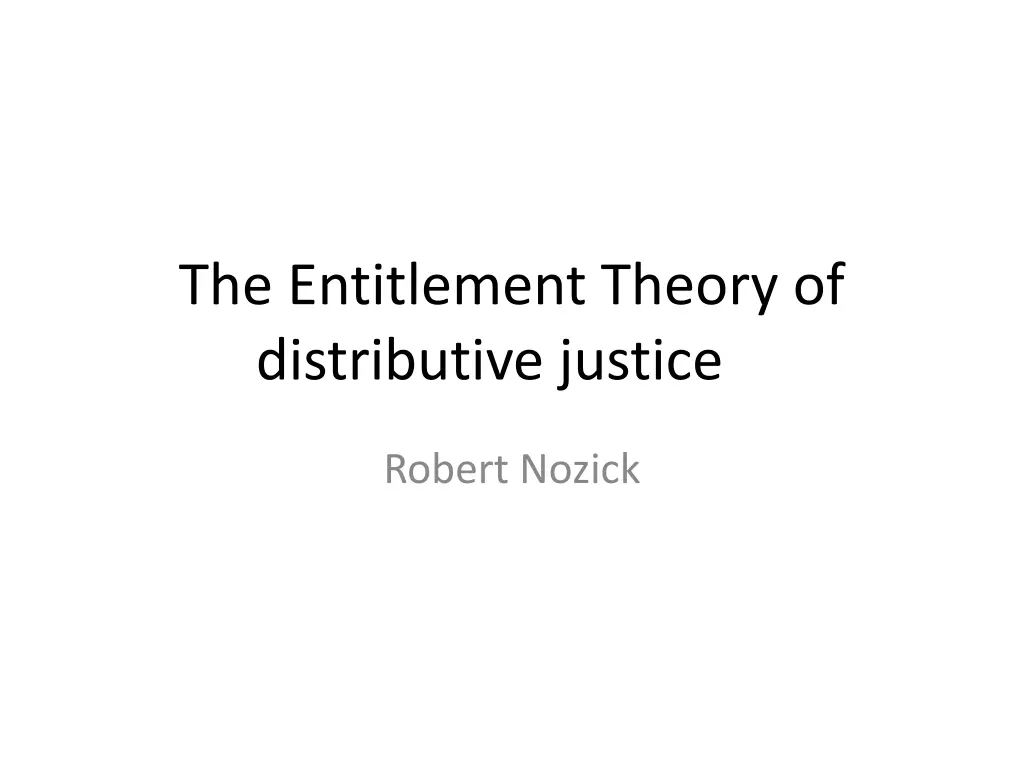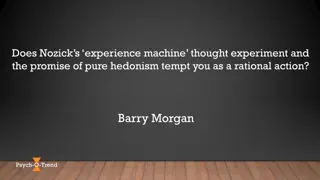
Understanding Nozick's Entitlement Theory of Distributive Justice
Explore Robert Nozick's Entitlement Theory of distributive justice, where justice is viewed through the acquisition and transfer of entitlements rather than focusing on equal distributions at any given time. Discover the preference for historical views over patterned ones, and delve into the conflicting values between Rawls and Nozick. Understand the potential troubles and criticisms associated with Nozick's theory as highlighted by Julian Sanchez.
Download Presentation

Please find below an Image/Link to download the presentation.
The content on the website is provided AS IS for your information and personal use only. It may not be sold, licensed, or shared on other websites without obtaining consent from the author. If you encounter any issues during the download, it is possible that the publisher has removed the file from their server.
You are allowed to download the files provided on this website for personal or commercial use, subject to the condition that they are used lawfully. All files are the property of their respective owners.
The content on the website is provided AS IS for your information and personal use only. It may not be sold, licensed, or shared on other websites without obtaining consent from the author.
E N D
Presentation Transcript
The Entitlement Theory of distributive justice Robert Nozick
Entitlement Theory: 1. Justice in Acquisition (Legitimately moving something from an unheld state into a held state) 2. Justice in Transfer (moving from one holder to another, or divesting) 3. No one is entitled to anything except by applications of 1) and 2).
Is an historical rather than patterned view: Historical Justice is determined by how a distribution came about, not by how it looks at any given time. Patterned (end-state, time-slice) You can tell if a society is Just by looking at the way that wealth is distributed at some given time and seeing if it fits or does not fit some pattern. Equality Education Punitive Merit (social utility) Work (Marx) Rawls (choices behind veil of ignorance) Justice is a process Justice is an outcome
Why is an historical view preferable? Because Liberty upsets patterns. Consider: D1 D2 Wilt signs deal for $.25 per ticket Wilt has $250,000, more than anyone else Your favorite pattern
Conflicting values Rawls Outcome Equality Low reward Low risk Safety Nozick Process Liberty High reward High risk Efficiency
Troubles? (from Julian Sanchez) Nozick s view may commit the fallacy of composition (assuming that features of parts become features of the whole) Might be similar to environmental damage: one person washing clothes in a river does not harm, so is environmentally just. A million doing the same thing is not environmentally just.

